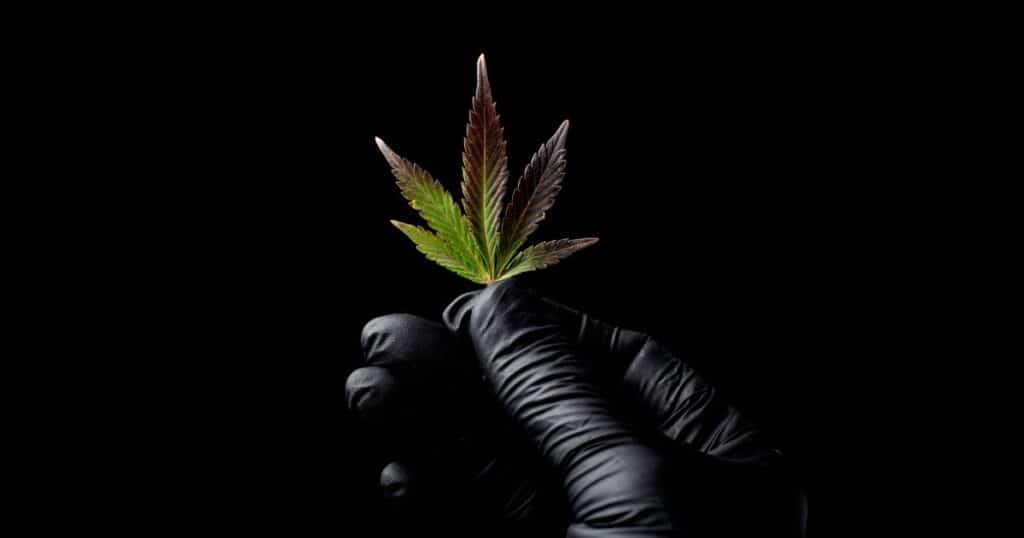For newcomers to the world of cannabis, “the munchies” may seem like a curious, often humorous term borrowed from pop culture, referring to an increased appetite after using cannabis.
This concept has become well-known, closely linked with the relaxed lifestyle associated with cannabis culture. However, looking past the casual references in media, the munchies offer a glimpse into how cannabis affects our bodies’ biological processes, specifically with the Endocannabinoid System

Cannabis Beyond the Stereotype
Before we unravel the biological underpinnings of the munchies, it’s essential to debunk a common misconception. The munchies, while often played for laughs in media, offers a serious window into how cannabis works within our bodies.
Cannabis — not a singular substance but a complex “cocktail” of compounds — affects people differently and has a rich history of usage, not just for recreation but for various medicinal, spiritual, and ceremonial purposes.
It’s a plant steeped in historical significance, a staple in numerous cultures, and is increasingly being recognized within a more mainstream medical and wellness context. Understanding the munchies allows individuals to appreciate cannabis for its complexity, efficacy, and, yes, even its relationship with food and appetite.
How Cannabis Provokes Hunger
The ‘munchies’ are not merely a cultural punchline; they are a biological reaction to cannabis consumption. The culprits behind the munchies are two prominent compounds in cannabis — THC (tetrahydrocannabinol) and CBD (cannabidiol) — and how they interact with the endocannabinoid system.
THC: The Notorious Hunger Hormone
THC is well-known for its psychoactive effects, and one of its less understood functions is its role in appetite stimulation. When THC binds to the CB1 receptors in the brain, it triggers the release of the hormone ghrelin, also known as the ‘hunger hormone.’ This results in increased appetite, making food seem more appealing and taste more intense.
CBD: A Balancer of Biochemical Forces
In contrast, CBD balances the endocannabinoid system more subtly but still participates in regulating appetite, albeit less directly. CBD, known for regulating appetite, might help moderate the extreme hunger THC causes through its interaction with various metabolic processes.
Understanding how these cannabinoids influence our hunger can provide insights into their potential therapeutic applications, such as in patients undergoing chemotherapy, where decreased appetite can be a significant side effect.
The Brain, Food, and the Endocannabinoid System
To truly comprehend the munchies, a primer on the endocannabinoid system is imperative. This complex network of neurotransmitters and receptors plays a crucial role in maintaining various physiological processes, including mood, memory, pain, and hunger regulation.
When cannabis enters this system, it mimics the action of endogenous cannabinoids. This opens up a multitude of effects, several of which culminate in a rewiring of the brain’s reward pathways associated with food. In short, cannabis can make food seem more rewarding and eating a more satisfying experience.
Why Some Strains Induce Stronger Munchies
Not all cannabis strains are created equal, at least when it comes to inducing the munchies. The exact chemical composition of a strain — the specific balance of THC, CBD, and hundreds of other cannabinoids and terpenes — dictates not just the high users experience but the potential for appetite stimulation as well.
High-THC strains tend to be more adept at causing the munchies, the psychoactive effects being one of their most discernible characteristics for consumers. However, it’s crucial to note that the relationship between cannabis and appetite is not solely reliant on THC; the terpene content and overall cannabinoid profile also play significant roles.
Harnessing the Munchies for Good
The munchies can be both a delight and a dilemma, depending on the context and individual. For some, using cannabis in a controlled, mindful manner can enhance the experience of eating — food becomes more flavorful, and the act of consumption can become more mindful. An emerging field within the culinary arts is exploring the synergy between cannabis and food, harmonizing the plant’s flavors and effects with various cuisines and dishes.
However, it’s important to recognize that the munchies, like any effect of cannabis, should be harnessed responsibly. In a recreational scenario, the sudden hunger pangs can lead to overeating or unhealthy food choices. In a medicinal context, particularly for those managing conditions where appetite is suppressed, the enhancement of food’s pleasure can be beneficial.
The Future of Cannabis and Appetite
The role of cannabis in appetite regulation is an area ripe for further research. Understanding the complex interactions at play can shed light on potential treatments for those who struggle with eating disorders, obesity, and a range of digestive system issues. It’s a field that holds promise and, in the years to come, could lead to novel approaches to common health concerns.
With more states and countries legalizing and decriminalizing cannabis, access to it for not just recreational, but also for scientific research, is opening up at an unprecedented rate. This bodes well for the future, where a nuanced understanding of the plant and its potential applications can drive innovations in healthcare and wellness.

“The munchies” is a lighthearted term for the complex bodily responses cannabis triggers. It’s a bridge between the fun, the scientific, and the potentially therapeutic aspects of this plant. By seeking to understand appetite stimulation in the context of cannabis, individuals can enrich their appreciation for the plant’s multifaceted attributes. It’s a reminder that, like many things in life, eating under the influence of cannabis is an experience that can be not just enjoyable, but revealing of the intricacies of our neurobiology.
Whether you’re a connoisseur, a newcomer, or an inquisitive soul seeking to demystify the munchies, know that as the wheel of cannabis legislation, research, and acceptance turns, The understanding you gain about your own use of this ancient herb can be as rewarding as the snacks you might find yourself enjoying afterward.

















